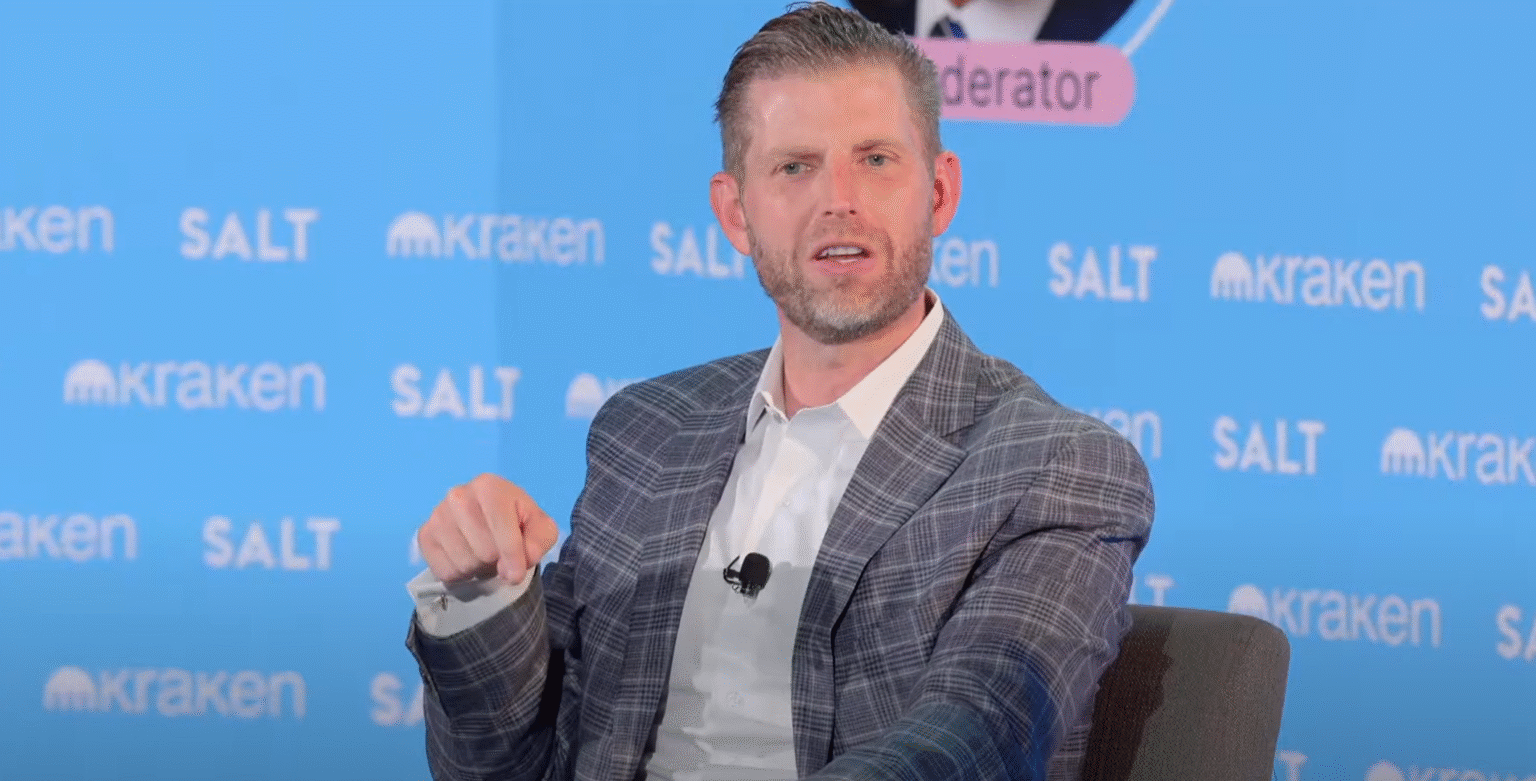In the ever-evolving landscape of digital currency, whispers and speculations often ripple through the market, capturing the imagination of investors and enthusiasts alike. Recently, an intriguing claim emerged from the Wyoming Blockchain Symposium, tantalizing ears with the possibility that a sovereign nation might have covertly acquired a substantial amount of Bitcoin. Such revelations not only fuel curiosity but also underscore the increasing significance of cryptocurrencies in global finance.
Did a Nation Secretly Acquire 200,000 Bitcoin?
At the symposium, Eric Trump shared a provocative anecdote, hinting that a nation might have stealthily accumulated a massive nine-figure Bitcoin holding. Speculation surged across social networks as the potential implications of such a move were debated. Trump described the acquisition as a testament to confidence in Bitcoin’s future, albeit without providing specific details. With a price tag of around $22 billion, this substantial sum of Bitcoin captivated the attention of market watchers worldwide.
The dialogue further delved into Trump’s personal journey within the digital currency space, highlighting a shift from traditional assets to embracing cryptocurrencies. He emphasized the rapidly improving regulatory environment and predicted significant growth for Bitcoin, forecasting prices reaching six and even seven figures.
The notion of sovereign wealth funds and corporations acquiring Bitcoin as a strategic reserve resonated with ongoing geopolitical shifts. Trump illustrated how digital assets offer unprecedented flexibility and speed, allowing for large-value transactions with remarkable efficiency.
U.S. Government and Bitcoin Reserves: A Shared Narrative
The mention of 200,000 Bitcoin also sparked discussions because of its resemblance to the known holdings of the U.S. government, obtained through historical seizures. These holdings are often part of broader strategies, reflecting the growing acceptance of Bitcoin as a reserve asset. The speculation ties into a larger narrative of governments and institutions increasingly viewing Bitcoin as a viable component of their financial frameworks.
Exploring American Bitcoin’s Ambitious Ventures
Attention at the conference also turned towards American Bitcoin, a venture linked to Trump that aims to integrate mining with treasury management. Hut 8, a key player in this endeavor, showcased its strategy of vertical integration, presenting an efficient model for Bitcoin mining. By managing significant energy resources and optimizing costs, American Bitcoin positions itself as a formidable force in the industry.
Plans for listing on Nasdaq under the ticker ABTC through a merger with Gryphon Digital Mining further signal the project’s ambition to secure a prominent market presence. As American Bitcoin ramps up its treasury strategy, it also showcases its commitment to strategic acquisition, holding a substantial Bitcoin reserve.
At the time of reporting, Bitcoin’s market performance continued to capture interest, maintaining its status as a focal point for investors and financial strategists.
Is Bitcoin a Safe Investment for the Future?
Bitcoin’s potential as a long-term investment remains a subject of debate. Its decentralized nature and growing global acceptance provide compelling reasons for investment. However, like any asset, it is subject to market volatility and regulatory changes which prospective investors should consider before making decisions.
What Impact Does Sovereign Investment in Bitcoin Have on the Market?
If governments covertly or openly invest in Bitcoin, it signals a significant shift in the perception of digital currencies. Such actions could stimulate market growth, potentially leading to increased adoption and stability. The strategic positioning of Bitcoin as a reserve asset might also influence its long-term valuation positively.
How Does American Bitcoin Plan to Impact the Crypto Industry?
American Bitcoin aims to revolutionize the industry through a combined approach of mining and treasury management, emphasizing efficient operations and strategic acquisitions. By leveraging its energy management and production capabilities, it seeks to establish a dominant and sustainable market presence.

